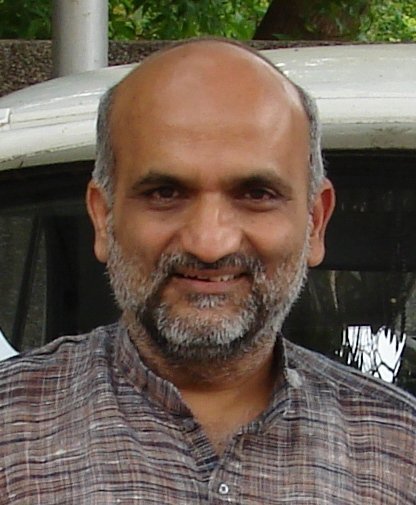India prioritizes efforts to safegaurd microbial flora
August 07, 2013 | Wednesday | News | By Rahul Koul Koul
India prioritizes efforts to safegaurd microbial flora
Dr Yogesh Shouche, senior scientist, NCCS, Pune
"Of course we all feel very happy about it. We were waiting for this for a long time," says Dr Yogesh Shouche, the incharge of Pune based Microbial Culture Collection (MCC) that was designated as a national repository for microorganisms under the Biological Diversity Act 2002 vide its Order No. 26-15/2007-CSC ON July 8, 2013 by the ministry of environment and forests. The cultures are now readily available for purchasing to any academic institute or industry for biotechnological exploration though under some mandatory guidelines.
Affiliated to National Centre for Cell Science (NCCS) MCC is a national facility funded by the Department of Biotechnology (DBT), government of India. It is an affiliate member of the World Federation for Culture Collections (WFCC) and is registered with the World Data Centre for Microorganisms (WDCM, registration number 773). The main objectives are to act as a national depository, to supply authentic microbial cultures and to provide related services to the scientific community working in research institutions, universities and industries.
Dr Souche, who is also a senior scientist at NCCS, elaborated on the genesis of the MCC. "In 2007, department of biotechnology (DBT) had undertaken a major program on microbial prospecting, under which 2,50,000 bacterial isolates were collected from different ecological niches. The nine institutes across the country that participated in this program included Delhi University, Guru Nanak Dev University (GNDU), Institute of Genomics and Integrative Biology (IGIB), Institute of Life Sciences (ILS), Institute of Bio Resources & Sustainable Development (IBSD), National Environmental Engineering Research Institute (NEERI), M. S. Swaminathan Research Foundation (MSSRF), NCCS and National Institute of Oceanography (NIO). At the suggestion of Dr. Amit Ghosh, DBT decided to have all these isolated at one place so that these can be available in future to any one across the country."
"Finally the MCC came up on the campus of NCCS which is an autonomous institute under the DBT. Once this culture collection was established, it was but natural that it will also have collection of reference strains, type strains etc.", added Dr Shouche.
It was Dr Shouche who as a scientist from NCCS along with Prof Rup Lal, Delhi University, Prof Chadha , GNDU, Dr. V. C. Kalia, IGIB, Dr S K Das, ILS, Dr Tiwari, IBSD; Dr Purohit, NEERI; Dr Sudha Nair, MSSRF; and Dr Ramaiah from NIO, jointly spearheaded the efforts to collect the bacterial isolates.
The MCC was recognized by the World Intellectual Property Organization (WIPO), Geneva, Switzerland as an International Depository Authority (IDA) under Budapest Treaty in April 2011. The deposit of microorganisms under the Budapest Treaty is recognized to fulfill the requirement of patent procedure in 55 member countries. That means now any culture deposited for patent purpose will be recognized internationally by the signatory states of the treaty.
The MCC scientists are actively involved in the research programmes relating to microbial diversity, metagenomics, ecology and taxonomy using both classical and molecular approaches. As a frontline research and development centre the centre focuses on basic research in the areas of microbial diversity, microbial taxonomy, microbial genomics and proteomics etc.
Additionally it also offers services like patent deposits, safe deposits, supply of cultures and identification services. It also arranges training programs for students across the country. Apart from these activities, the centre shall be a focal point of human resources development. It will establish and conduct workshops, seminars, symposia and training programmes in the area of microbial identification, preservation and advanced areas of microbial taxonomy/phylogeny.
After all the recognitions, MCC is now looking at a big transformation to maintain its unique identity. For spearheading its activities far and wide, the centre will require enough manpower, infrastructure and world class facilities at a bigger scale. Therefore, the government is now considering to upgrade it as an independent or autonomous institute.
"In the near future, the centre wants to acquire ISO certification for its services so that the clients will be ensured about the quality. It will also have a supporting research component. The proposal to establish it as an independent entity is in advanced stage with DBT," concludes Dr Shouche.










